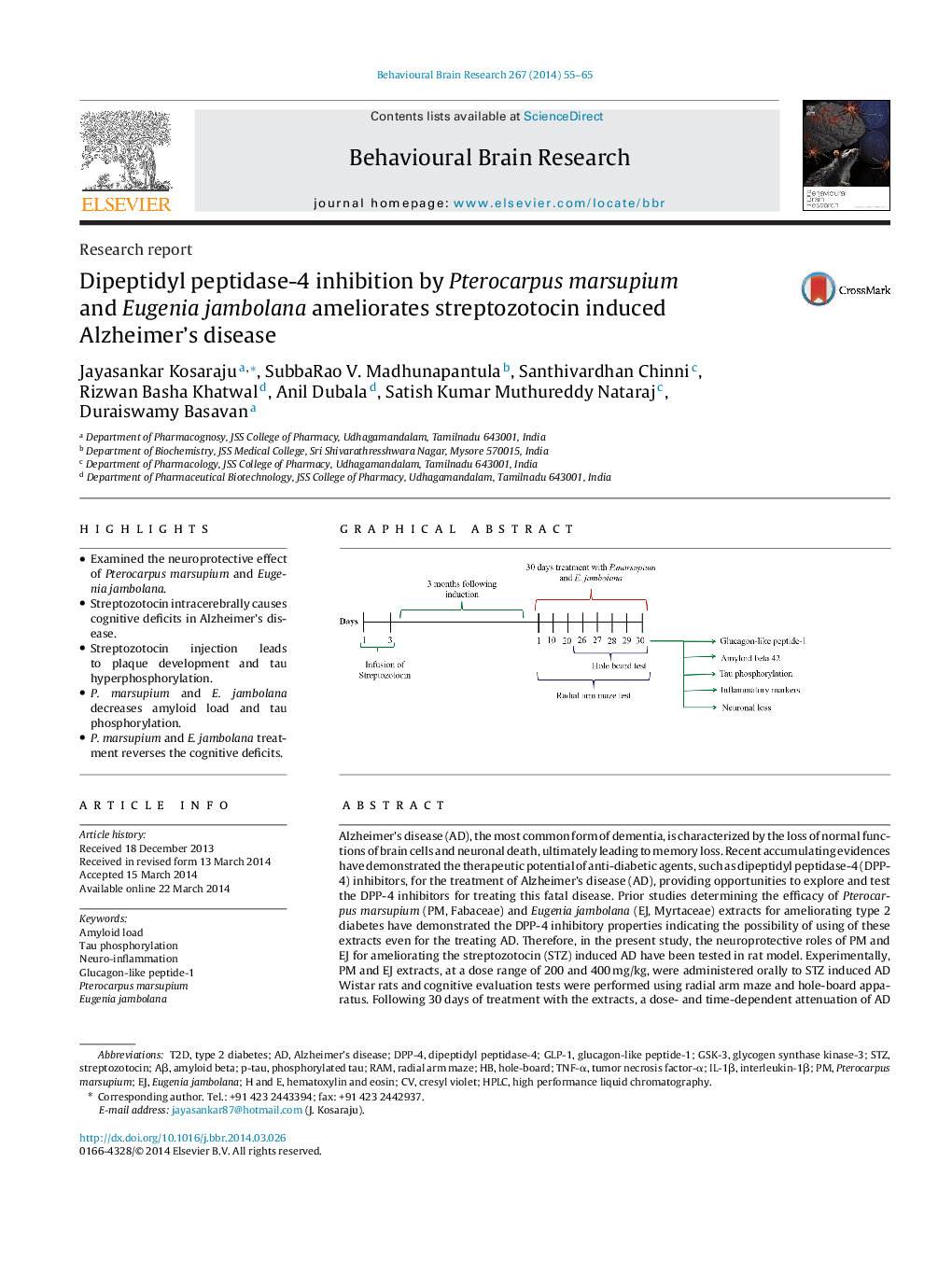| کد مقاله | کد نشریه | سال انتشار | مقاله انگلیسی | نسخه تمام متن |
|---|---|---|---|---|
| 4312524 | 1612965 | 2014 | 11 صفحه PDF | دانلود رایگان |

• Examined the neuroprotective effect of Pterocarpus marsupium and Eugenia jambolana.
• Streptozotocin intracerebrally causes cognitive deficits in Alzheimer's disease.
• Streptozotocin injection leads to plaque development and tau hyperphosphorylation.
• P. marsupium and E. jambolana decreases amyloid load and tau phosphorylation.
• P. marsupium and E. jambolana treatment reverses the cognitive deficits.
Alzheimer's disease (AD), the most common form of dementia, is characterized by the loss of normal functions of brain cells and neuronal death, ultimately leading to memory loss. Recent accumulating evidences have demonstrated the therapeutic potential of anti-diabetic agents, such as dipeptidyl peptidase-4 (DPP-4) inhibitors, for the treatment of Alzheimer's disease (AD), providing opportunities to explore and test the DPP-4 inhibitors for treating this fatal disease. Prior studies determining the efficacy of Pterocarpus marsupium (PM, Fabaceae) and Eugenia jambolana (EJ, Myrtaceae) extracts for ameliorating type 2 diabetes have demonstrated the DPP-4 inhibitory properties indicating the possibility of using of these extracts even for the treating AD. Therefore, in the present study, the neuroprotective roles of PM and EJ for ameliorating the streptozotocin (STZ) induced AD have been tested in rat model. Experimentally, PM and EJ extracts, at a dose range of 200 and 400 mg/kg, were administered orally to STZ induced AD Wistar rats and cognitive evaluation tests were performed using radial arm maze and hole-board apparatus. Following 30 days of treatment with the extracts, a dose- and time-dependent attenuation of AD pathology, as evidenced by decreasing amyloid beta 42, total tau, phosphorylated tau and neuro-inflammation with an increase in glucagon-like peptide-1 (GLP-1) levels was observed. Therefore, PM and EJ extracts contain cognitive enhancers as well as neuroprotective agents against STZ induced AD.
Figure optionsDownload high-quality image (112 K)Download as PowerPoint slide
Journal: Behavioural Brain Research - Volume 267, 1 July 2014, Pages 55–65